9.1 Gramática: El imperfecto – The Imperfect – Expressing what you used to do
9.1 Gramática: El imperfecto – The Imperfect – Expressing what you used to do
A. The Spanish imperfect tense describes actions that occurred repeatedly or habitually in the past.
B. Conjugation. There are TWO patterns of endings for the imperfect:
for –AR verbs -> aba endings
for –ER /IR verbs -> ía endings
The imperfect often means USED TO or WOULD.
De niña, jugaba todos los días con mis primos.
As a child, I used to (would) play every day with my cousins.
Cuando éramos jóvenes, íbamos al cine los fines de semana.
When we were young, we would go to the movies on weekends.
| Jugar: to play sports / games | |
| (yo) jugaba | (nosotros) jugábamos |
| (tú) jugabas | (vosotros) jugabais |
| (usted/él/ella) jugaba | (ustedes/ellos/ellas) jugaban |
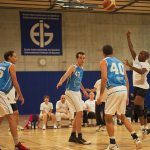
| Comer: to eat | |
| (yo) comía | (nosotros) comíamos |
| (tú) comías | (vosotros) comíais |
| (usted/él/ella) comía | (ustedes/ellos/ellas) comían |
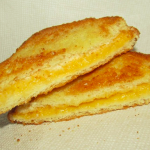
| Vivir: to live | |
| (yo) vivía | (nosotros) vivíamos |
| (tú) vivías | (vosotros) vivíais |
| (usted/él/ella) vivía | (ustedes/ellos/ellas) vivían |
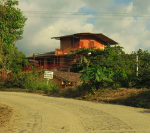
C. Only THREE verbs are irregular in the imperfect
| Ir: to go | Ser: to be | Ver: to see | |
| (yo) | iba | era | veía |
| (tú) | ibas | eras | veías |
| (usted/él/ella) | iba | era | veía |
| (nosotros) | íbamos | éramos | veíamos |
| (vosotros) | ibais | erais | veíais |
| (ustedes/ellos/ellas) | iban | eran | veían |
Cuando ERA muy joven, mi familia y yo ÍBAMOS a la playa todos los veranos.
When I was very young, my family and I used to go to the beach every Summer.
D. Uses of the Imperfect (los usos del imperfecto)
| 1. To describe REPEATED HABITUAL actions in the past.
used to + verb, would + verb Cuando era joven, yo jugaba básquetbol todos los fine de semana. When I was young, I would play basketball every weekend. |
| 2. To describe an action in PROGRESS (when something else happened).
was/were + -ing Yo iba manejando (cuando un carro me chocó). I was driving (when a car hit me). |
| 3. To describe two SIMULTANEOUS past actions in progress, with MIENTRAS (while).
was/were + -in Ella hacía la tarea mientras texteaba a sus amigas. She was doing homework while texting her friends. |
| 4. To describe ongoing physical, mental, or emotional states in the past.
Ayer yo no me sentía bien. She was doing homework while texting her friends. |
| 5. To tell TIME in the past and to express.
La clase era a la una de la tarde. The class was at 1 pm. |
| 6. AGE with tener.
Cuando yo tenía 15 años, vivía en Perú. When I was 15 years old, I lived in Peru. |
Summary of the uses of Imperfect |
|
-used to, would |
E. Time Expressions and Key Words used with the imperfect tense.
| mientras | while |
| a menudo | often |
| a veces | sometimes |
| cada día / mes | every day / month |
| cada semana / año | every week / year |
| con frecuencia | frequently |
| de vez en cuando | from time to time |
| frecuentemente | frequently |
| generalmente | generally |
| muchas veces | many times |
| siempre | always |
| tantas veces | so many times |
| todas las semanas | every week |
| todos los días | every day |
| todo el tiempo | all the time |
| usualmente | usually |
| varias veces | several times |
 Actividad # 1
Actividad # 1
¿Con qué frecuencia? For each of the childhood and teenager activities below, use an expression of frequency to tell how often you used to do them.
Ejemplo:
Subirse a los árboles: Cuando era niña, todo el tiempo me subía a los árboles.
(Me subía a los árboles todo el tiempo).
1. colorear: 
__________________________________________________________.
2. disfrazarse: 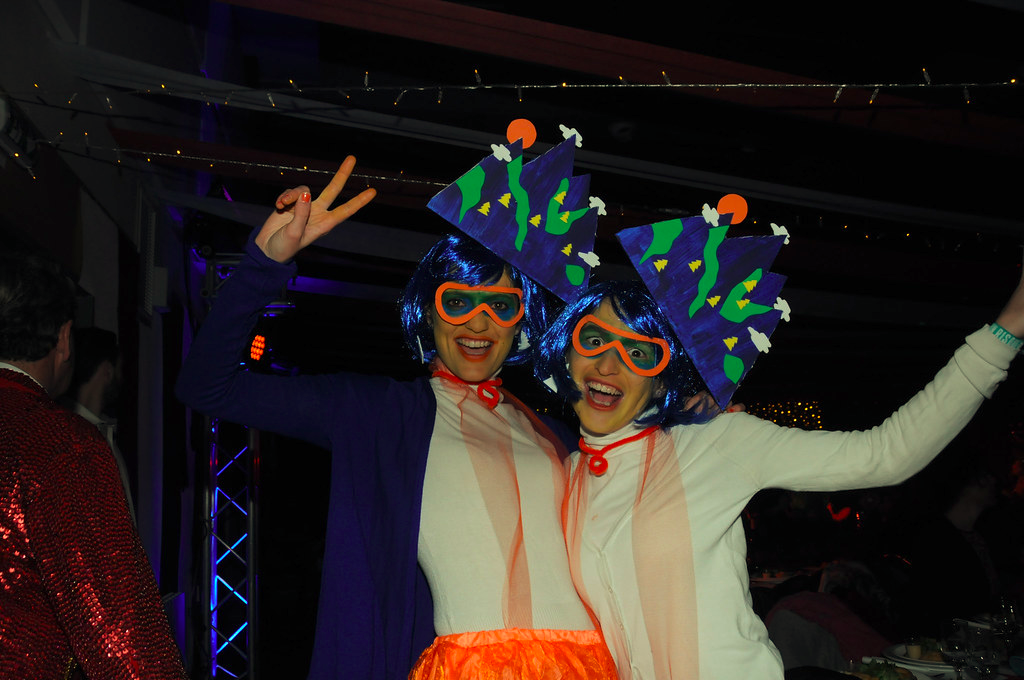
__________________________________________________________.
3. subirse a los árboles: 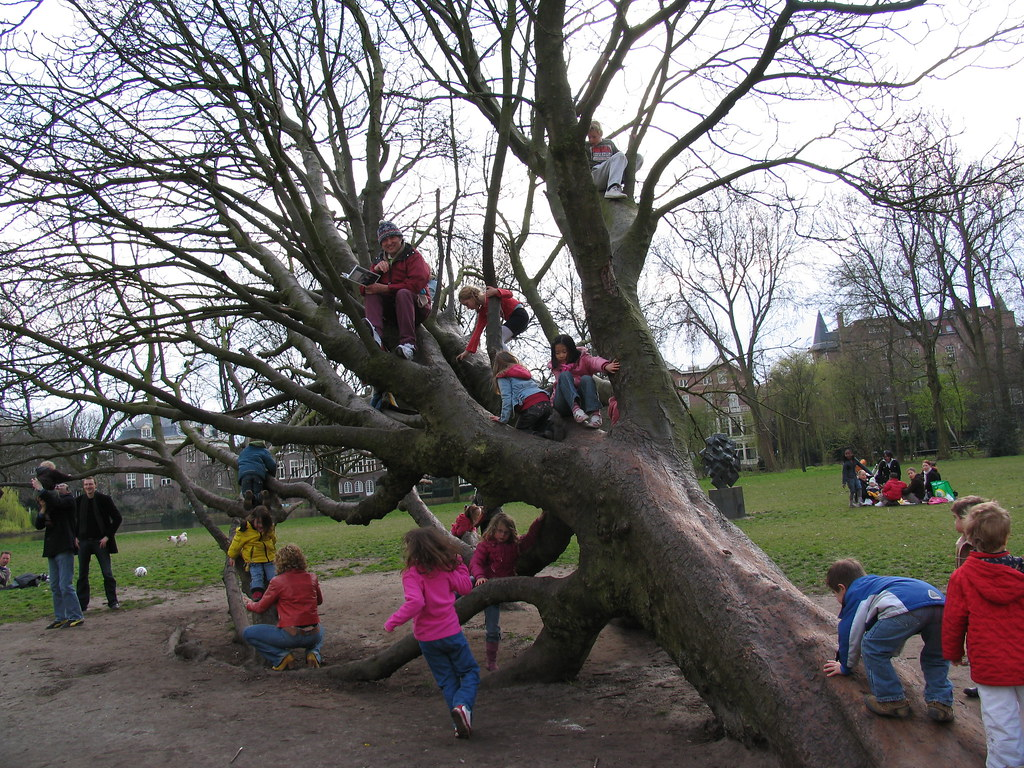
__________________________________________________________.
4. meterse en líos: 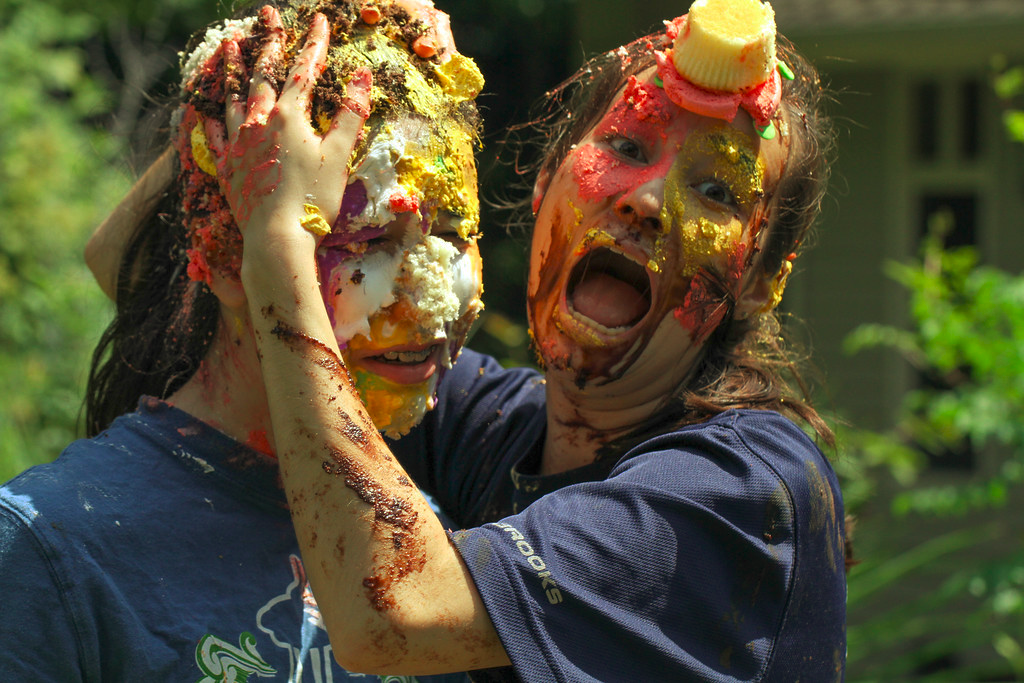
__________________________________________________________.
5. pelearse con los hermanos o amigos: 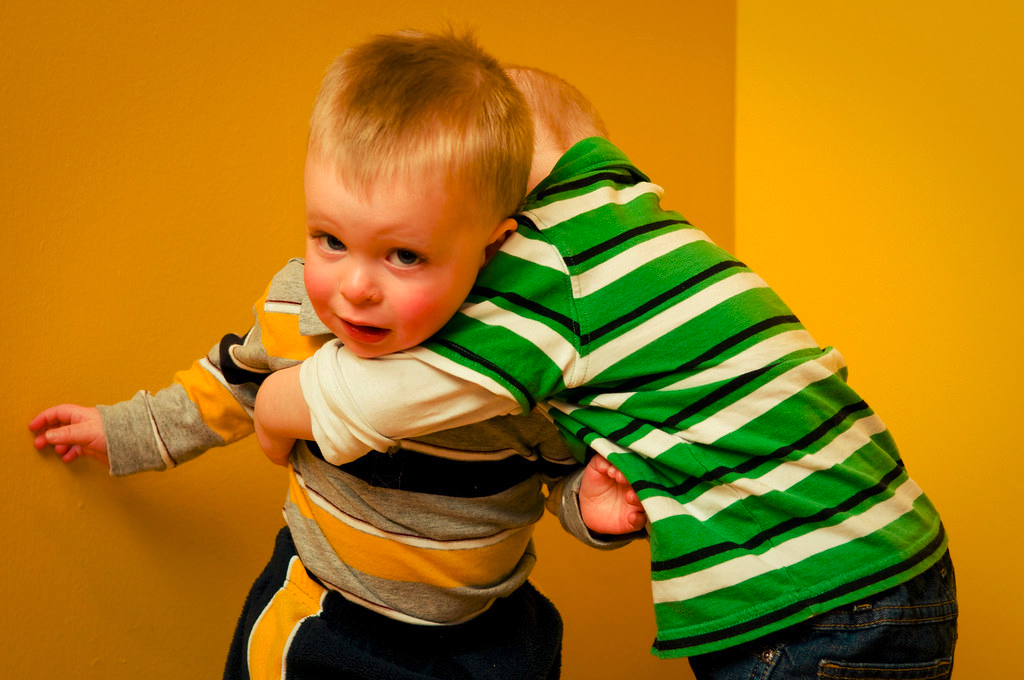
__________________________________________________________.
6. jugar videojuegos: 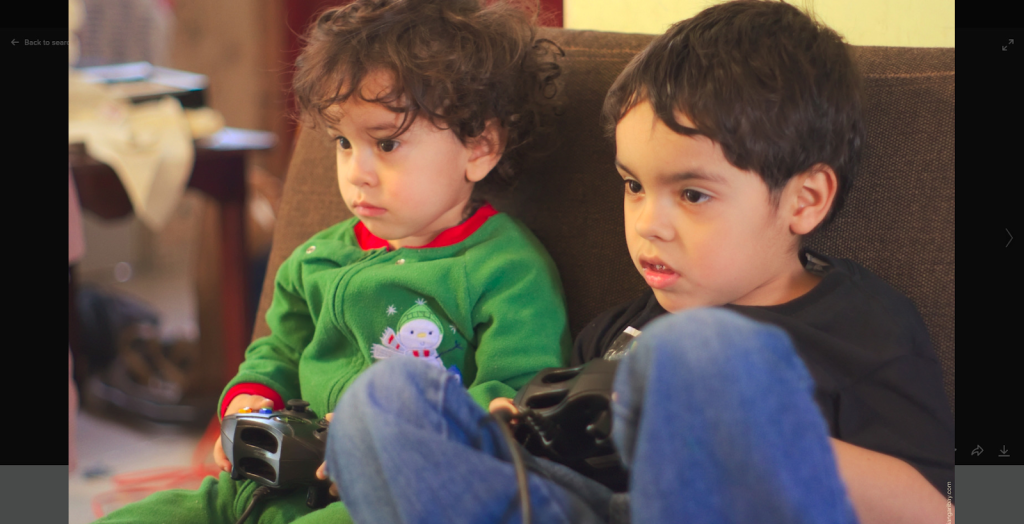
__________________________________________________________.
 Actividad # 2
Actividad # 2
Traducciones. Translate the following sentences to Spanish, then tell me if they are cierto o falso for you. If they are falso, change something to make it true.
1. I was timid when I was six years old. (Cierto / Falso)
__________________________________________________________.
2. My grandma used to cook every Sunday. (Cierto / Falso)
__________________________________________________________.
3. There were many people at my last birthday party. (Cierto / Falso)
__________________________________________________________.
4. When I was a kid, my family always went to California every Summer. (Cierto / Falso)
__________________________________________________________.
5. When I was young, I used to play video games for 6 hours every day. (Cierto / Falso)
__________________________________________________________.
 Actividad # 3
Actividad # 3
¿Qué hacías…? Create sentences based on what you used to do at different ages. Be aware that you will not use the past tense to discuss what you do these days—this quadrant will be a good place to review the present tense and to compare and contrast the present tense with the imperfect. Be prepared to share with the class.
Yo a los 7 años. . .
|
Yo a los 13 años. . .
|
Yo a los 16 / 18 años. . .
|
Yo hoy en día (don´t need past tense)
|
 Actividad # 4
Actividad # 4
Actividad de firma: Find un (a) compañero (a) who used to do the following activities when they were kids. Then, ask them to sign their name.
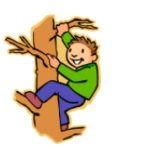 FIRMA
FIRMA
¿Te subías a los árboles? _____________________________________.
¿Nadabas mucho? ______________________________________.
¿Bebías mucha leche? ______________________________________.
¿Creías en Santa Claus? ______________________________________.
¿Le tenías miedo (was afraid) al dentista? _______________________________.
¿Jugabas con muñecas / carritos? _______________________________.
¿Andabas en bicicleta? ______________________________________.
¿Jugabas algún deporte? _______________________________________.
 Actividad # 5
Actividad # 5
Entrevista: La niñez. With a partner, practice the following questions.
Estudiante A
- De niño (a) , ¿Dónde vivías? Y ¿Con quién?
- ¿Qué te gustaba hacer? ¿Jugabas con muñecas? ¿con carritos o trenes?
- ¿Visitabas mucho a los abuelos?
- ¿Tenías un perro o un gato? ¿Cómo se llamaba?
- ¿Tenías un amigo imaginario? ¿Cómo era?
- ¿Ibas al cine con frecuencia? ¿Qué películas te gustaba ver?
Estudiante B
- De niño (a), ¿vivías en una ciudad o un pueblito?
- ¿Qué hacías con mucha frecuencia?
- ¿Qué programas de televisión veías?
- ¿Te portabas bien, o eras rebelde?
- ¿Tenías muchos amiguitos? ¿Cómo se llamaba tu mejor amigo (a)?
- ¿Cuál era tu comida favorita?
 Actividad # 6
Actividad # 6
Entrevista: La juventud. With a partner, take turns asking and answering the following questions.
Cuando estabas en la escuela secundaria. . . .
- ¿Estudiabas todas las noches?
- ¿Manejabas? ¿Qué tipo de carro tenías?
- ¿Trabajabas los fines de semana?
- ¿Leías mucho? ¿Qué tipo de libros te gustaba más?
- ¿Practicabas algún deporte?¿Cuál?
- ¿Cuál era tu clase favorita? Y ¿por qué?
- ¿Qué hacías con tus amigos los fines de semana?
- ¿Qué tipo de música escuchabas?
 Actividad # 7
Actividad # 7
LOS RECUERDOS. Memories. Write two sentences for each situation. Then, share them with a compañero (a).
Ejemplo: Recuerdo que para la Nochevieja siempre teníamos una fiesta en la casa de mi tía. Comíamos buñuelos y natilla. También, bailábamos toda la noche.
1. Recuerdo que en Navidad (Jánuca, Ramadán, el Año Nuevo) mi madre (abuela, mis tíos, mis abuelos. . . ) siempre…
2. Cuando era niño (a) para el Día de la Independencia (el 4 de julio. . .16 de septiempre…) mi familia siempre…
3. Todavía recuerdo que para el Día de Acción de Gracias. ..
 Actividad # 8
Actividad # 8
Preguntas personales. Take turns asking each other the following questions. Use the reactions from Para conversar mejor.
| Para conversar mejor |
|
¡Qué bien! ¡Qué difícil! ¡Qué suerte! ¡Qué horror! ¿En serio? Tienes razón No lo puedo creer Claro ¿De veras? (No) Estoy de acuerdo No me digas Suena bien Por supuesto |
1. ¿Cómo ERAS cuando TENÍAS 5 años? ¿Y cuando TENÍAS 15 años?
2. ¿Cómo ERAN tus padres cuando eras niño (a) o adolescente? ¿Estrictos, conservadores, protectores?. . . ¿Son diferentes ahora que eres adulto (a)? Explique.
3. Cuando ERAS joven, ¿VIVÍAS en el mismo lugar o SE MUDABA mucho tu familia? ¿VIVÍAS cerca de otros parientes? ¿Piensas que es importante escoger una universidad o un trabajo que te permita estar cerca de tu familia?
Actividad # 9
Mi vida cuando ERA NIÑO (A). . .
Paso 1. Listen (3 minutes) to Luca from Eslovenia talking about his life as a kid.
Paso 2. WRITE the answers to the following questions about Luca´s childhood.
1. ¿Luca vivía en una ciudad grande o pequeña?
2. ¿Dónde jugaba Luca?
3. ¿Con quién vivía Luca?
Paso 3. Using this video as a model, record yourself talking about your life as a kid (at least 5-6 sentences). For example, where you lived and with whom, what you used to do, what school you attended, favorite things that you used to do, talk about your best memories from childhood.
_______________________________________________________________
_______________________________________________________________
_______________________________________________________________.
 Actividad # 10
Actividad # 10
Ahora y Antes: los tiempos cambian. The following sentences describe some aspects of our society today. With a partner, take turns describing how things are now and how they were in another era (use the imperfect).
Ejemplo: Ahora, las mujeres -no solo los hombres- usan pantalones.
E1: Ahora, casi todas las mujeres usan pantalones, pero antes. . .
E2: Antes, la mujeres solo USABAN faldas.
- Ahora, hay enfermeros (male nurses) y maestros (male teachers), pero antes. . .
- Ahora, muchas parejas (couples) viven juntas antes de casarse, pero antes. . .
- Ahora manejamos carros pequeños y eléctricos, pero antes. . .
- Ahora nos comunicamos con teléfonos inteligentes (SmarthPhones), pero antes. . .
- Ahora muchas personas viven en casas grandes, pero antes. . .
- Ahora, muchas personas van al cine y miran la televisión, pero antes. . .

